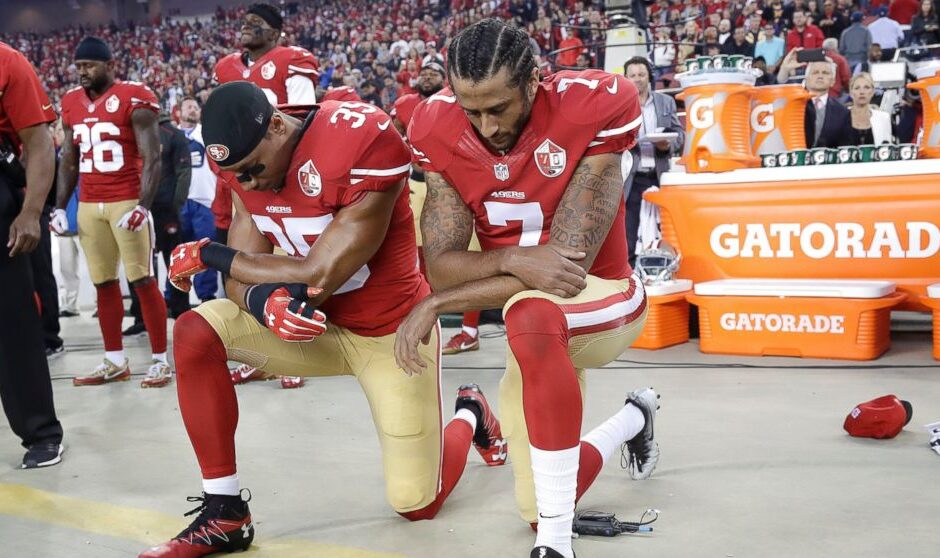Colin Kaepernick’s name is no longer simply tied to football—it has become shorthand for protest, principle, and the collision of sports with politics. His rise from NFL quarterback to cultural lightning rod has been one of the most dramatic transformations in modern American athletics, a story of sacrifice and reinvention that continues to reverberate nearly a decade after it began.
Born in Milwaukee in 1987 and adopted by a white family in California, Kaepernick excelled in multiple sports before focusing on football at the University of Nevada. Drafted by the San Francisco 49ers in 2011, he quickly distinguished himself with a unique blend of speed and arm strength. By 2012, he had led the 49ers to the Super Bowl, dazzling fans with his improvisational style. At just 25, he looked like a franchise cornerstone.
But his career trajectory changed in 2016, when he began kneeling during the national anthem to protest police brutality and racial injustice. What started as a solitary act of conscience soon spread across the league, igniting a national debate over race, patriotism, and free expression. Supporters hailed his courage in using his platform to highlight systemic inequality. Critics, including political leaders, accused him of disrespecting the flag and the military.
The consequences were swift and profound. By the end of that season, Kaepernick was out of a starting job. Despite statistical performances that matched or exceeded many quarterbacks who were signed by other teams, no franchise brought him back. He became the face of what he and his allies called blackballing, while the league maintained that teams had made independent decisions. In 2017, he filed a collusion grievance against the NFL, alleging that owners conspired to keep him unsigned because of his protest. The case was settled in 2019 under confidential terms.
In the years since, Kaepernick has continued to advocate for social justice through his Know Your Rights Camp, which provides education and resources to underprivileged youth. He has also written, lectured, and collaborated on media projects, including a memoir and scripted television. Though he has trained and expressed a desire to play again, his football career remains effectively over.
Kaepernick’s influence extends well beyond the field. His kneel became a global symbol of dissent, imitated by athletes in soccer, basketball, and even the Olympics. The NFL itself, once reluctant to embrace his message, later adopted “End Racism” campaigns and saw Commissioner Roger Goodell admit the league had mishandled its response. Still, Kaepernick has never been invited back.
His cultural impact was cemented in 2018 when Nike featured him in a prominent ad campaign with the slogan, “Believe in something. Even if it means sacrificing everything.” The campaign was divisive but proved commercially successful, reinforcing Kaepernick’s image as both a brand and a movement.
For Spike Lee, his story was an irresistible subject for a docuseries. Kaepernick’s journey contained all the elements of great drama: triumph, controversy, exile, and resilience. The series promised to give him the chance to narrate his own life on his own terms, an opportunity that, for now, has been put on hold with ESPN’s withdrawal.
Kaepernick remains a figure who polarizes public opinion, but there is no denying his historical significance. Few athletes in modern times have altered the cultural conversation so profoundly. His name sits alongside Muhammad Ali, Tommie Smith, and John Carlos in the lineage of athletes who used their visibility to force America to confront uncomfortable truths.
Though he may never throw another pass in the NFL, Colin Kaepernick’s legacy is already assured. He has become more than an athlete—he is a symbol of resistance, a reminder of the costs of protest, and an enduring figure in the struggle for racial justice in America.




